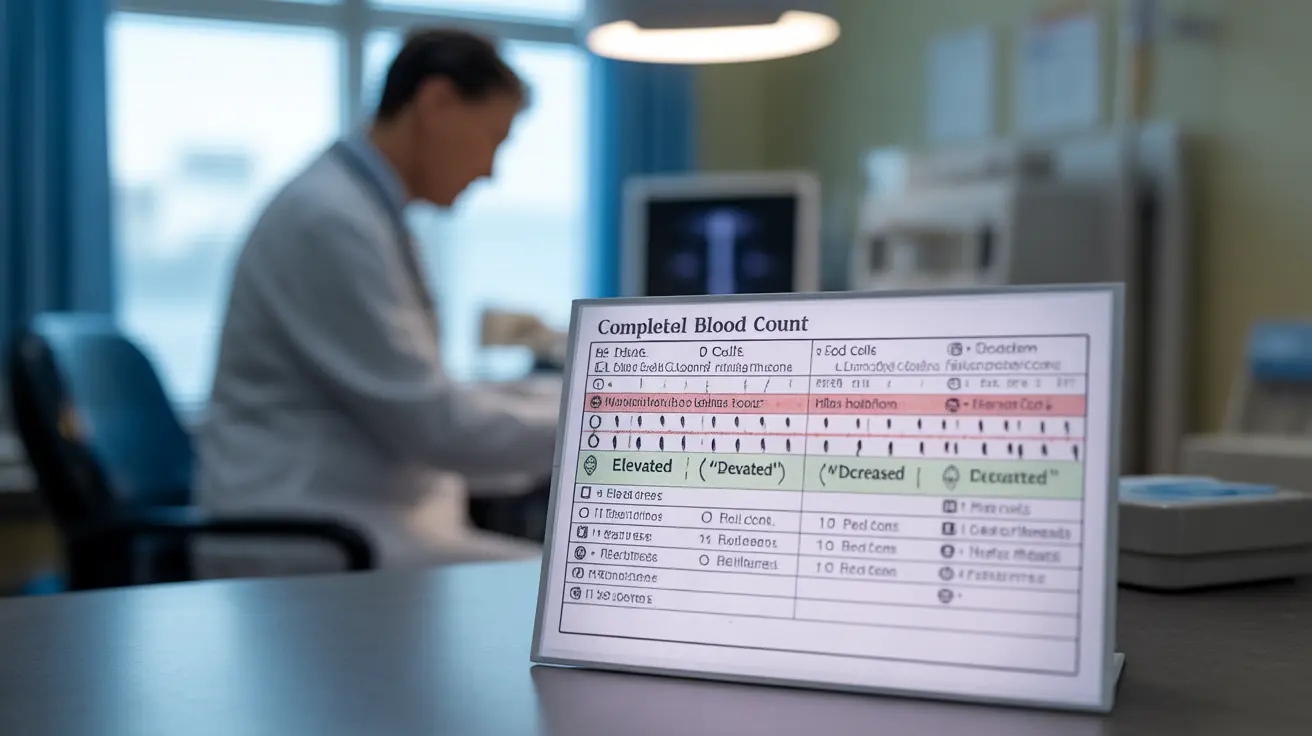Complete blood count (CBC) results play a crucial role in both the initial evaluation and ongoing monitoring of non-Hodgkin's lymphoma. Understanding these blood test results can provide valuable insights into a patient's condition and help healthcare providers make informed decisions about additional testing and treatment approaches.
This comprehensive guide explores how CBC results relate to non-Hodgkin's lymphoma, what specific changes doctors look for, and how these results guide the diagnostic and treatment process.
Common CBC Abnormalities in Non-Hodgkin's Lymphoma
When examining CBC results in the context of non-Hodgkin's lymphoma, several key abnormalities may be present:
White Blood Cell Changes
Changes in white blood cell counts often serve as the first indication of potential lymphoma:
- Elevated lymphocyte counts (lymphocytosis)
- Abnormal lymphocyte appearances
- Decreased counts of other white blood cells
- Presence of unusual or atypical lymphocytes
Red Blood Cell Abnormalities
Non-Hodgkin's lymphoma can significantly impact red blood cell production:
- Low red blood cell count (anemia)
- Decreased hemoglobin levels
- Reduced oxygen-carrying capacity
- Changes in red blood cell size or shape
Platelet Considerations
Platelet abnormalities may also be present:
- Low platelet count (thrombocytopenia)
- Impaired platelet function
- Increased risk of bleeding or bruising
The Role of CBC in Diagnosis
While CBC results can suggest the presence of non-Hodgkin's lymphoma, they cannot provide a definitive diagnosis on their own. However, these results serve several important purposes:
Initial Screening
CBC tests help doctors identify potential blood abnormalities that warrant further investigation. Unusual results may prompt additional testing, including:
- Lymph node biopsies
- Imaging studies
- Bone marrow examination
- Flow cytometry
Disease Monitoring
Regular CBC testing during treatment helps healthcare providers:
- Track treatment effectiveness
- Monitor disease progression
- Identify potential complications
- Adjust treatment protocols as needed
CBC Results and Treatment Decisions
CBC results influence various aspects of treatment planning and monitoring:
Treatment Timing
Healthcare providers use CBC results to:
- Determine when to initiate treatment
- Schedule treatment cycles
- Assess the need for dose adjustments
- Monitor for treatment-related complications
Response Assessment
Regular CBC monitoring helps evaluate:
- Treatment effectiveness
- Disease progression or regression
- Recovery between treatment cycles
- Long-term remission status
Frequently Asked Questions
What abnormalities in CBC results might suggest the presence of non-Hodgkin's lymphoma?
Common CBC abnormalities that may suggest non-Hodgkin's lymphoma include elevated or decreased white blood cell counts, particularly lymphocytes, low red blood cell counts (anemia), and low platelet counts. The presence of abnormal or atypical lymphocytes may also be noted.
How does a complete blood count (CBC) help in monitoring non-Hodgkin's lymphoma treatment?
CBC testing helps monitor treatment effectiveness by tracking changes in blood cell counts, assessing bone marrow function, and identifying potential treatment complications. Regular CBC monitoring allows healthcare providers to adjust treatment protocols and timing as needed.
Can a CBC test alone diagnose non-Hodgkin's lymphoma, or is a biopsy always required?
While CBC results can suggest the presence of lymphoma, a definitive diagnosis always requires a biopsy. CBC results serve as an important screening tool but must be confirmed through tissue examination, typically from a lymph node biopsy.
What blood cell changes are commonly seen in patients with non-Hodgkin's lymphoma?
Common blood cell changes include abnormal lymphocyte counts or appearance, anemia (low red blood cells), thrombocytopenia (low platelets), and potential decreases in other white blood cell types. These changes can vary depending on the type and stage of lymphoma.
How do CBC results influence the need for further tests like imaging or biopsies in suspected non-Hodgkin's lymphoma?
Abnormal CBC results often trigger the need for additional diagnostic testing. Healthcare providers use these results to determine which further tests are necessary, such as imaging studies, biopsies, or bone marrow examination, to confirm the diagnosis and assess disease extent.




